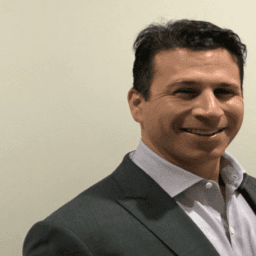
Patients who sue a hospital for medical malpractice are not entitled to records documenting the hospital’s internal examination into what went wrong, the state Supreme Court has ruled, upholding a 2004 law intended to encourage medical professionals to learn from and prevent future mistakes.
The ruling, released Monday, stems from a medical malpractice lawsuit brought by Esther and Gedalia Applegrad, who alleged their daughter’s brain injury and seizure disorder were caused by a series of mistakes made during the baby’s delivery and care at Valley Hospital in Ridgewood in May 2007.
The couple asked a judge to order Valley Hospital to turn over memos titled “Director of Patient Safety Post Incident Analysis.” The trial judge ruled in the hospital’s favor, saying the documents were protected under the Patient Safety Act, a 2004 law intended to protect the confidentiality of a hospital’s internal investigation into a mistakes or other bad outcomes for the purpose of preventing future errors.
The couple appealed and an Appellate court sided with the couple, saying the hospital had not conducted its internal investigation properly under rules written by the state Health Department in 2008, and therefore could not claim these documents were confidential under the Patient Safety Act. The hospital asked the state Supreme Court to take the case, arguing Valley Hospital could not be found in violation of rules that were not adopted at the time of its 2007 internal review.
The Supreme Court agreed with the hospital.
Writing for the majority in the split 4-3 decision, Justice Anne Patterson noted the health department’s rule-making process — spelling out how each hospital must create a patient safety commission to conduct the internal investigations — did not occur until four years after the passage of the Patient Safety Act.
What the legislature made clear, however, is its intent to allow health professionals to speak freely and “assess adverse events in a confidential setting, in which an employee need not fear recrimination for disclosing his or her own medical error or that of a colleague,” Patterson wrote. “The Legislature thus recognized the pivotal role of confidentiality in promoting open and effective evaluation and reporting.”
Patterson’s opinion was supprted by Justices Jaynee LaVecchia, Faustino Fernandez-Vina and Appellate Judge Ariel Rodriguez, who was temporarily assigned to the court when the case was heard.
Sen. Joseph Vitale, (D-Middlesex), one of the prime sponsors of the Patient Protection Act, said the court got it right.
“When I wrote the act, I wanted to create a mechanism where hospital patient safety committees could freely discuss medical errors and address possible solutions and improvements,” Vitale said. “Attorneys representing patients continue to have access to medical and procedural information and those who provided treatment. This is a necessary balance for both patients and providers.”
David Knowlton, president and CEO of the New Jersey Health Care Quality Institute, which championed the law’s passage, said the law was never intended to “shield the doctor or a hospital from liability.”
People may still sue and subpoena other records and seek to compel the medical professionals who participated in the confidential internal investigation to testify in a medical malpractice case.
“I understand the other side; harm was done,” Knowlton said. “But there should be an opportunity for the institution to figure out how can we save lives here and prevent this from happening again.”
Ross A. Lewin, an attorney for the New Jersey Hospital Association who filed a brief in support of Valley Hospital, said he thought the facts of this case “will not have widespread application…because the self critical analysis undertaken by Valley Hospital” occurred before the state published rules describing how the analysis must be conducted.
But for hospitals that follow the rules, “they will be able to successfully claim the privilege and insure the privileged nature of the dialogue occurring in these self critical analyses,” Lewin said.
Three justices disagreed with the decision. Citing language from the 2004 law, Appellate Judge Mary Cuff, who is temporarily assigned to the supreme court, wrote that hospitals are expected to create a patient safety committee that is “representative of the facility’s various disciplines and have appropriate competencies.”
“Yet the Hospital committee that reviewed the tragic event was comprised of three administrators, none of whom was a physician, much less one specializing in obstetrics,” according to Cuff’s dissenting opinion, supported by Chief Justice Stuart Rabner and Justice Barry Albin
0



